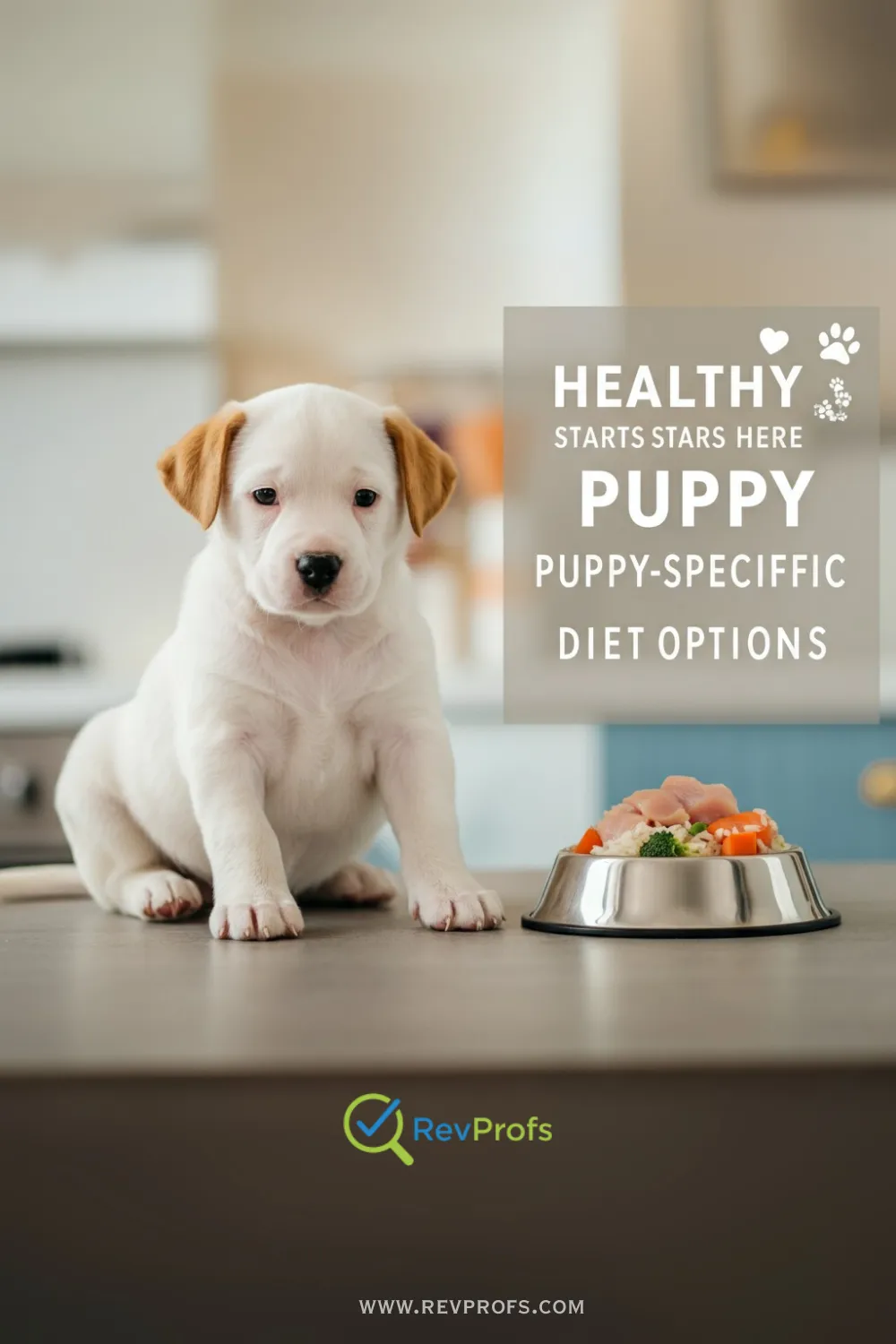Can Puppies Eat Adult Dog Food?
Bringing a new puppy home is an exciting time filled with joy, cuddles, and a fair share of questions. As a pet owner, you want to do everything right, especially when it comes to nutrition. A common question we see from new puppy parents is, “Can puppies eat adult dog food?” It’s a great question, and you’re not alone in asking it. The short answer is no, puppies should not eat adult dog food as their main source of nutrition. While a few bites won’t cause immediate harm, a consistent diet of adult food can lead to significant health problems down the road.
This article will guide you through why puppy-specific food is so important. We’ll explore the key nutritional differences between puppy and adult formulas, what happens if your puppy eats the wrong food, how to choose the best food for your growing friend, and when it’s finally time to make the switch.

Key Nutritional Differences Between Puppy and Adult Food
Puppies are bundles of energy undergoing rapid growth and development. Think of them as tiny athletes in training; their bodies are building muscle, strengthening bones, and developing vital organs at an incredible pace. To support this, they require a diet that is specially formulated to meet these intense demands. Adult dog food, on the other hand, is designed for maintenance, not growth.
Here’s a closer look at what sets these two types of food apart.
Higher Protein for Muscle Growth
Protein is the building block of the body, essential for developing strong muscles, tissues, and organs. Puppies need significantly more protein than adult dogs. According to the Association of American Feed Control Officials (AAFCO), puppy food should contain a minimum of 22.5% protein on a dry matter basis, whereas adult maintenance food only requires 18%. This extra protein ensures your puppy has everything they need to build a strong, healthy body.
More Calories for Energy and Growth
Have you ever noticed how your puppy can go from a full-speed “zoomie” session to a deep sleep in minutes? That constant cycle of play and rest burns a massive number of calories. Puppies can require up to twice the calories per pound of body weight as an adult dog of the same breed. Puppy formulas are calorie-dense to provide this essential energy, fueling their growth and playful antics. Adult dog food is lower in calories to prevent weight gain in less active, fully-grown dogs.
Specific Vitamins and Minerals for Development
Beyond protein and calories, puppies have unique needs for certain vitamins and minerals. Key nutrients like calcium and phosphorus are critical for developing strong bones and teeth. The ratio of these minerals is just as important as the amount. An improper balance can lead to serious skeletal issues, especially in large-breed puppies.
Puppy foods are also often fortified with fatty acids like DHA (docosahexaenoic acid), which is vital for healthy brain and vision development. These are nutrients you won’t always find in sufficient quantities in a standard adult dog food formula.
What Happens If a Puppy Eats Adult Dog Food?
If your puppy sneaks a few mouthfuls from your older dog’s bowl, there’s no need to panic. A small amount of adult dog food on occasion is unlikely to cause any lasting damage. However, if a puppy is fed an adult dog food diet consistently, it can lead to several health complications.
The Risks of an Imbalanced Diet for a Growing Puppy
- Nutritional Deficiencies: A diet of adult food can leave your puppy lacking the essential protein, calories, and fats they need to grow. This can result in stunted growth, a weak immune system, and a dull, unhealthy coat.
- Skeletal Problems: This is one of the biggest risks, particularly for large and giant breed puppies. Adult dog food may not have the correct calcium-to-phosphorus ratio. Too much or too little calcium can interfere with proper bone development, potentially leading to orthopedic conditions like hip dysplasia.
- Developmental Issues: The lack of specific nutrients like DHA in many adult formulas can impact your puppy’s cognitive and visual development. Providing the right foundation from the start helps set them up for a lifetime of good health.
Practical Advice for Puppy Owners
Navigating the world of pet food can feel overwhelming, but we’re here to help. Here is some practical advice to ensure your puppy gets the best nutritional start in life.
How to Choose the Right Food for Your Puppy
When you’re in the pet food aisle, look for bags that are specifically labeled for puppies. Here are a few more tips:
- Check for the AAFCO Statement: Look for a nutritional adequacy statement on the package. It should say the food is “formulated to meet the nutritional levels established by the AAFCO Dog Food Nutrient Profiles for growth” or something similar. This is your assurance that the food is complete and balanced for a growing puppy.
- Consider Breed Size: Many brands offer formulas tailored to small, medium, or large-breed puppies. This is especially important for large breeds, as their food is designed to support controlled growth to protect their joints. You can learn more about finding the best diet in our guide, [How to Choose the Best Food for Your Dog].
- Consult Your Veterinarian: Your vet is your most trusted resource. They can recommend specific brands or formulas based on your puppy’s breed, size, and individual health needs.
When Is the Right Time to Switch from Puppy to Adult Food?
This is another common question, and the answer depends almost entirely on your dog’s breed and size. A dog is generally considered an adult when they have reached their full expected height.
- Small Breeds (under 20 pounds): These dogs mature quickly and can often switch to adult food between 9 and 12 months of age.
- Medium Breeds (20-50 pounds): They typically reach adulthood around 12 months.
- Large and Giant Breeds (over 50 pounds): These gentle giants take longer to grow. They should remain on puppy food until they are 18 to 24 months old to ensure their joints and bones are fully developed.
When you’re ready to make the change, do it gradually over 7-10 days to avoid upsetting your dog’s stomach. For more detailed steps, check out our article [When and How to Transition Your Dog’s Food].
What to Do If Your Puppy Accidentally Ate the Wrong Food
If it was just a small amount, simply monitor your puppy for any signs of stomach upset, like diarrhea or vomiting. In most cases, they’ll be perfectly fine. If they ate a large amount or seem unwell, it’s always a good idea to call your veterinarian for advice.
A Foundation for a Healthy Life
Choosing the right food for your puppy is one of the most important decisions you’ll make as a pet owner. While adult dog food isn’t toxic, it simply lacks the nutritional firepower a growing puppy needs to thrive. By feeding a high-quality, balanced puppy formula, you are providing the foundation for strong bones, healthy organs, and a sharp mind.
Enjoy every moment of this special time with your new companion. Providing them with the right nutrition is a key part of ensuring you have many happy and healthy years together. For more information on canine nutritional needs, authoritative sources like the American Kennel Club (AKC) and the American Veterinary Medical Association (AVMA) offer excellent resources for pet owners.
Ready for the Next Step?
Your pet's journey doesn't end here. Explore our expert guides to ensure they get the best care at every stage.
Puppy & Dog Care
From choosing the right food to understanding their behavior, our dog care guides cover everything you need to know.
Explore Dog GuidesGear & Product Reviews
Find honest, in-depth reviews on the latest pet gear, from smart collars to durable toys, and make informed decisions.
See All Reviews

